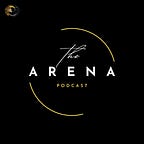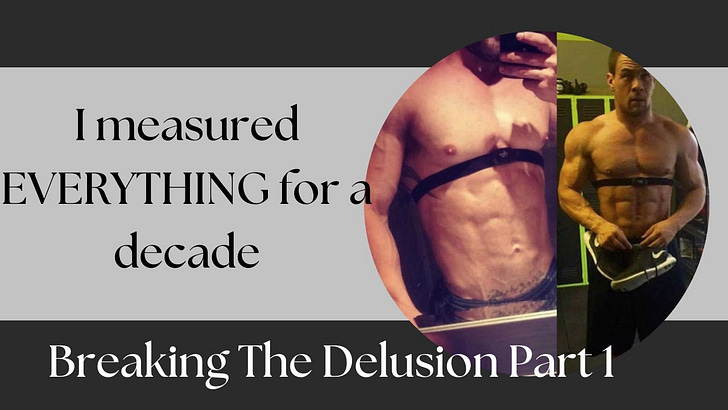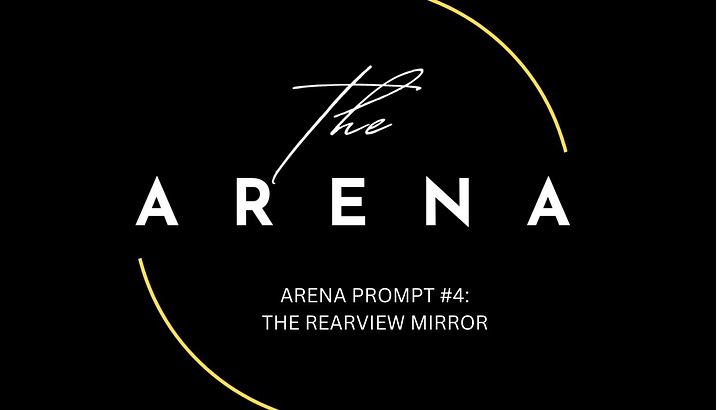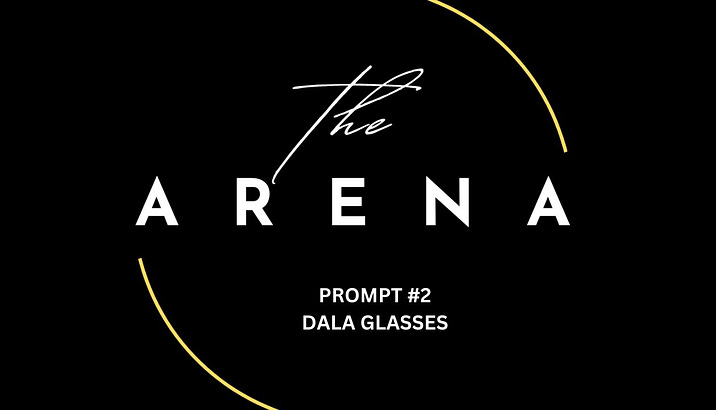Engaging The Field [ETF] 1:
This audio series loosely follows and expands upon the Engaging The Field Handbook.
Engaging the Field and self-efficacy
Intellectual vs biological “colorblindness”
Planck Knowledge vs Chauffeur Knowledge
Resources:
Intellectual colorblindness is discussed further in my book, Bumpers. You can get a free copy at www.bumpersbook.com
Planck Knowledge vs Chauffeur Knowledge
Why Do We Need to Engage the Field?
Most people don't know what to focus on.
That might sound mundane, but it's a significant problem which prevents most people from knowing how to get what they want in life.
From our perspective, if you did know what to focus on, it would be a byproduct of identifying the most immediate constraint toward the thing you want. So getting what you want would be a matter of knowing how to identify the most immediate constraint and then being able to implement solving that constraint with a tight feedback loop.
But,
Most people don't know what to focus on to begin with.
In comes, Engaging the Field.
"I thought I needed someone to coach me in hiring or needed someone to help me solve this problem. I didn't, I just needed to engage the field. I had all the tools that I needed, I didn't realize it."
- Andrew Junak PT, DPT, OCS
Founder, Peak Physiotherapy and Performance
What can we actually do?
Engaging the Field tells us what we individually can actually do. This is our level of self-efficacy.
In many areas you probably have more self-efficacy than you realize, and it takes Engaging the Field to discover this.
The problem is we think we don't know how to do something, or can't do something, or need to learn more to do something, and our mind goes to find coaches and experts we can pay in order to tell us what to do or to teach us.
But all the while,
We actually already know what we need to know, the only missing piece was Engaging the Field to uncover this knowledge within ourselves.
Similarly and conversely,
There may be areas of expertise where you believe you are far more competent than you actually are. Or areas where you are far less suited to be active than you actually are. Whether that's knowledge, skill, or just the level of interest in doing the activity.
Engaging the Field not only tells us what we know and what we can do well, it tells us the areas we do less well, are not as competent in, and which may be better suited for paying someone else to take care of (for example).
Without Engaging the Field, you don't really know what you're capable of and what you should avoid.
We often carry impressions of these ideas, but really this is a delusion - a delusion that we can do something we can't and a delusion that we can't do something which we can.
You can also think of this as Classroom Smarts vs Street Smarts.
Classroom knowledge is the stuff that we read in a book. It's information - knowing about something.
Street smarts is the stuff that we learn from the experience of doing. It's not knowing about something, it's being the thing.
There is benefit to stepping into the classroom. This is where you can find ideas, find language, refine what you are doing. So it's not about choosing one over the other, but rather smoothly moving between the two.
You get your ideas in the classroom, and then you take those ideas out onto the street and put them to the test.
Then you take your experience on the street and go back to the classroom to refine.
This is all a structure to increase your ability to get what you want.
In the Engage the Field Handbook, you'll see right in the introduction our definition of "Intelligence."
Because most people think that learning is increasing their intelligence which means increasing their knowledge.
Our definition of "Intelligence" comes from Dr. Todd Snyder, and that is "The ability to get what you want."
Learning is increasing your intelligence, which means learning is increasing your ability to get what you want.
So as long as you want to increase your ability to get what you want - you're in the right place.
That's what our learning structure is based on, what The Arena is based on, what The Guardian Academy is based on, what all of our team and our partners use in life.
This isn't about sounding smart.
This isn't about knowing things.
**This is about engaging in a process and a structure which consistently and inevitably (as long as you keep engaging), increases your ability to get what you want.**
In order to increase your ability to get what you want, compared to where you are now, you must behave differently in the same situations (otherwise, if you behave the same nothing changes and you don't increase your ability to get what you want).
So,
Learning is having different behavior in the same situation.
The way to change your behavior, is to take new information and put it into action in the world.
For example:
Let's say you are in front of a hot stove. You put your hand on the stove. You burn your hand. Ouch.
Now you know that putting your hand on the hot stove burns your hand.
The next time you're in front of the hot stove, if you put your hand on it and burn it again you haven't learned anything.
(Unless burning your hand is the outcome you're after, in which case you learned how to easily burn your hand)
The only way to change your behavior,
Is to do things in the real world, observe what happens, and then make different decisions the next time you're in the same situation.
Therefore,
You cannot learn, grow, increase your intelligence, or increase your ability to get what you want without Engaging the Field.
It is the Thinker who is Handicapped
We like to put thinkers up on pedestals, people who know things, people who have the correct answers.
And conversely we think we are limited when we don't know things. We think we can't do because we don't know. We think those who know are better than us, more skilled, and that we should follow them.
But this is, in many ways, backwards.
There is a story from Nassim Nicholas Taleb. He tells a story about a group of researchers studying a tribe which was believed to be colorblind.
They were shown a blue string, and the people had a word for it.
Then they were shown a red string, and they used the same word.
The assumption was that they were colorblind because they couldn't tell the difference between red and blue.
But later it was discovered they could match a blue string with a blue swatch and a red string with a red swatch. So they could see the difference between the colors. They could see red and they could see blue, they just didn't have the words to articulate the different colors.
They were not biologically colorblind, they were only intellectually colorblind. In action in reality they had no handicap. They could see and function as if red and blue were different.
The only handicap for them was in the intellectual world where the words to describe the colors mattered more than the action of seeing and interacting with different colors.
This story illustrates how easy it is to mistake knowledge and action.
If someone can't explain the difference between red and blue, it's easy for us to assume that they don't know the difference.
But for most of life you don't need to have an intellectual understanding of things in order to know them and use them well.
An example:
To ride a bike, you don't need to know the intellectual theory, the aerodynamics, the reason balance becomes easier with movement. Knowing all that is useless if your goal is to just ride a bike. That's why we don't learn riding a bike by first studying thick tomes of physics.
We just get on the bike, move, fall a few times, and eventually figure it out ... which, ironically, you'd have to go through anyway even if you knew the science.
People often believe that knowing the theory is going to get them closer to what they want.
And so they sit around, spending all the time studying, "learning," gathering information, because they think knowing about the thing is going to get them what they want.
But knowing the information of the theory only means you know the information of the theory.
What Kind of Knowledge Matters?
You really only need to know information if you need to look good knowing information.
There's a story, which you can listen to fully in the audio above, or read about in the Engage the Field Manual - Planck Knowledge vs Chauffeur Knowledge ...
In which Nobel Prize Winning Physicist Max Planck was traveling around giving lectures on his theory of Quantum Mechanics. At one of his talks, his chauffeur stood up acting as him and recited the presentation (as he'd seen it done countless times). But when questioned afterwards, he returned the stand to Max Planck who had the actual knowledge.
(Listen to the audio, it's a great little story)
The lesson is that it's easy to LOOK intelligent.
All you have to do is know about the information and be able to recite the information in order to appear that you are smart and know things. And so we end up overvaluing this in life.
But life is not a test.
The person who Engaged the Field, did the work, and embodied becoming the thing - Max Planck - was ultimately the one who could demonstrate true understanding and speak to that.
The knowing doesn't matter,
It's the doing that matters.
And after all, we're all trying to become something different than we are now by doing, aren't we?
This is a simple exercise - think about the outcome you are trying to achieve. Undoubted it's around you doing something you aren't doing now.
Growing a successful business, losing weight, running a marathon, having a happy marriage, growing strong happy children. Whatever it is you are hoping to achieve ...
It's about doing and becoming the thing you hope to be.
It's not knowing. It's doing.
And that's why we Engage the Field.
Because it's the one way to do so that we can learn by changing our behavior in the same situations. And through that process we grow and achieve the things we desire.
So,
Go demonstrate that you have learned what we're showing you here, by Engaging the Field.
Get better at DOING, rather than knowing.
Because it is the doing that changes your life, not knowing about stuff.
Ready To Step Into The Arena?
Upgrade to TGA+ to engage in the comments and get invites to monthly live workshops
Get on the waitlist for the Arena - engagethefield.com
Grab a copy of the Engaging The Field Handbook - engagethefield.com/handbook
…and don’t keep it all to yourself. If you found value or just liked this episode, send it to someone like you.














